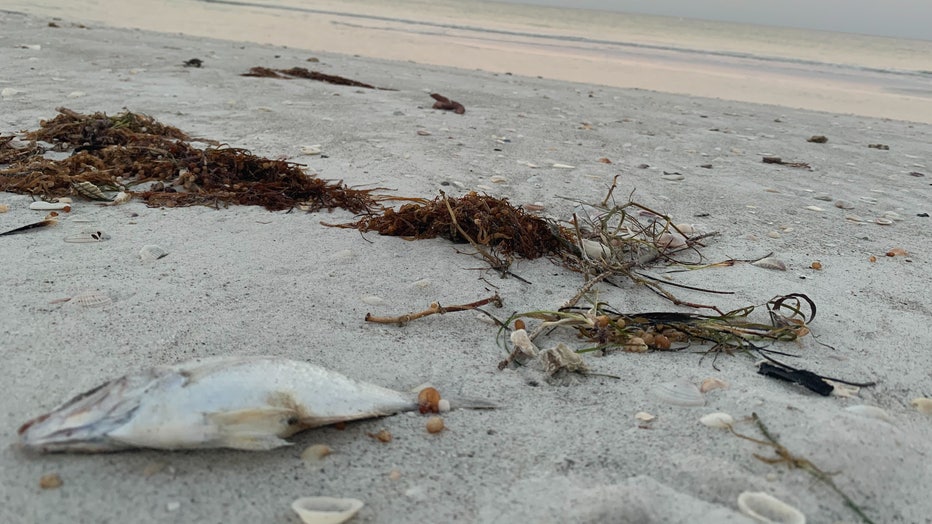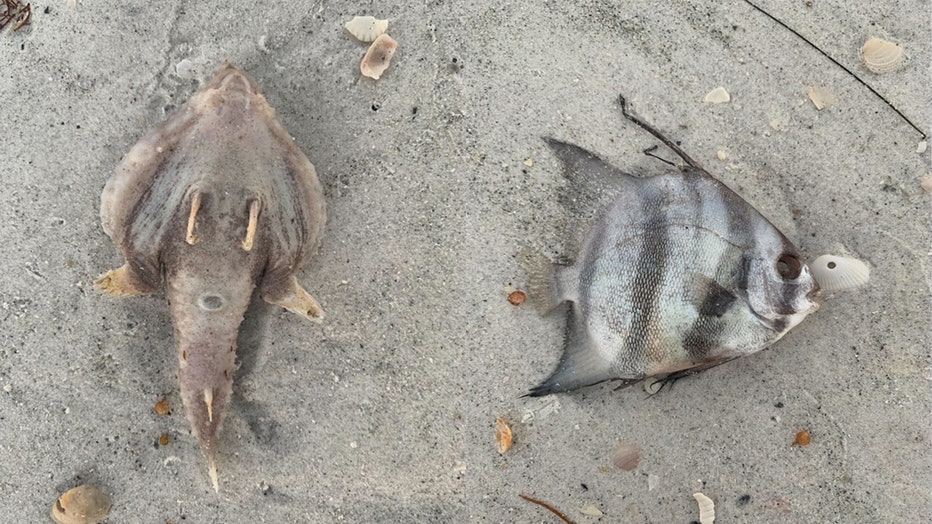Red tide forces Indian Rocks Beach community to cancel annual Beach Fest event
INDIAN ROCKS BEACH, Fla. - In the interest of public health, the Indian Rocks Beach Homeowners Association is canceling IRB Beachfest, the group's largest annual fundraiser which had been scheduled for April 15.
In an announcement on Tuesday, organizers said they had reviewed beach conditions, given careful consideration and consulted with officials from the city of Indian Rocks Beach and Pinellas County Health Department, ultimately determining to cancel the event.
"Red tide is currently present on the beach and is forecasted to remain in the area in the weeks to come," the group said in the cancelation announcement. "It is unfortunate that it had to be canceled," the announcement said, "but it is the best decision in the interest of public health."

Red tide is killing fish along Indian Rocks Beach.
FOX 13 News observed dozens of dead fish along Indian Rocks Beach that washed ashore overnight on Thursday. An operator could be seen using a surf rake to comb through the sand and remove the dead fish.
READ: What is causing red tide along Florida's Gulf coast?
Despite the conditions, dozens of beachgoers could be seen Thursday morning walking the beach, fishing and putting down towels.

Dead fish along Indian Rocks Beach.
According to the March 8 update from the Florida Fish & Wildlife Conservation Commission, over the past week, the red tide organism Karenia brevis was detected in 123 samples from and offshore of Southwest Florida.
READ: Manatee rescued near Holmes Beach had watercraft wound, signs of red tide exposure
FWC stated, "Bloom concentrations (>100,000 cells/liter) were present in 79 samples from Southwest Florida: 26 in and offshore of Pinellas County, eight in Manatee County, 27 in Sarasota County, five in Charlotte County, four in Lee County, eight in Collier County, and one offshore of Monroe County. We continue to use satellite imagery (USF and NOAA NCCOS) to help track this patchy event."
The latest sample map showed at least ten Pinellas County locations including Indian Rocks Beach, with red-level concentrations, which contain more than 1,000,000 cells per liter. Such concentrations can produce fish kills, discolored water, and respiratory symptoms in humans.

